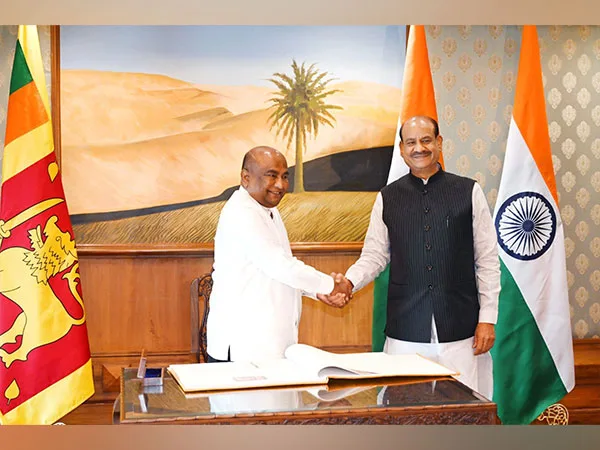In a significant move reflecting regional cooperation and mutual support, Sri Lankan Parliament Speaker Mahinda Yapa Abeywardana arrived in Delhi, India, on December 18, as part of a larger diplomatic engagement aimed at strengthening ties between the two nations. The visit gains prominence against the backdrop of Sri Lanka’s recent economic challenges, and India, as a close neighbour and a key player in the region, has shown a profound interest in supporting its southern counterpart during these trying times.
Strengthening Bilateral Relations
The visit of Speaker Mahinda Yapa Abeywardana to Delhi is expected to pave the way for crucial discussions and collaborations that could contribute to Sri Lanka’s economic recovery and foster stronger bilateral relations. While the specific details of the agenda or meetings remain undisclosed, such visits traditionally involve discussions on mutual interests, economic cooperation, and regional stability. This diplomatic engagement underscores the commitment of both nations to enhancing their strategic partnership.
India-Sri Lanka Economic Interdependence
Recent data from the Central Bank of Sri Lanka has revealed a significant shift in the country’s financial landscape. Credit to the Government of Sri Lanka and public corporations has surpassed credit to the private sector for the seventh consecutive month, a trend not witnessed since 1989. This persistent economic challenge has prompted India, as a key player in the region, to extend support to its neighbour.
India’s international trade policy includes substantial investments in strategically positioned island chains, including Sri Lanka. The goal is to export a threefold increase in goods and services by 2030. The economic interdependence between India and Sri Lanka is evident in the financial and humanitarian aid amounting to nearly USD 4 billion that India has provided to help Sri Lanka navigate through its economic crisis. This assistance reflects a shared commitment to regional stability and economic well-being.
Indian Diplomacy Amid Challenges
India’s role in the region is not without challenges. Recent allegations of plotting to murder pro-Khalistan elements in the United States and Canada have raised concerns, but India’s External Affairs Minister, S. Jaishankar, has maintained that these issues are separate. India remains willing to address specific concerns raised by other countries, including the ongoing probe into an alleged plot to kill Khalistan separatist Gurpatwant Sing Pannun and Khalistani terrorist Hardeep Singh Nijjar.
Despite the strain on diplomatic relations with the US and Canada, India’s commitment to military cooperation with Canada remains unaffected. India’s diplomatic engagement with its neighbors, including Sri Lanka, underscores its dedication to cooperation and stability in the region. Furthermore, India’s pursuit of better relations with China, despite challenges, highlights a strategic and pragmatic approach to diplomacy in South Asia.
Sri Lankan Speaker Mahinda Yapa Abeywardana’s visit to India serves as a crucial step in bolstering bilateral relations between the two nations. Against the backdrop of Sri Lanka’s economic challenges, India’s support is not only a testament to their historic ties but also reflects a shared commitment to regional stability and cooperation. The economic interdependence between India and Sri Lanka, coupled with India’s diplomatic challenges, underscores the intricate dynamics at play in the South Asian geopolitical landscape. As both nations navigate through these complexities, strengthened bilateral relations hold the promise of fostering a more prosperous and stable future for the region.









